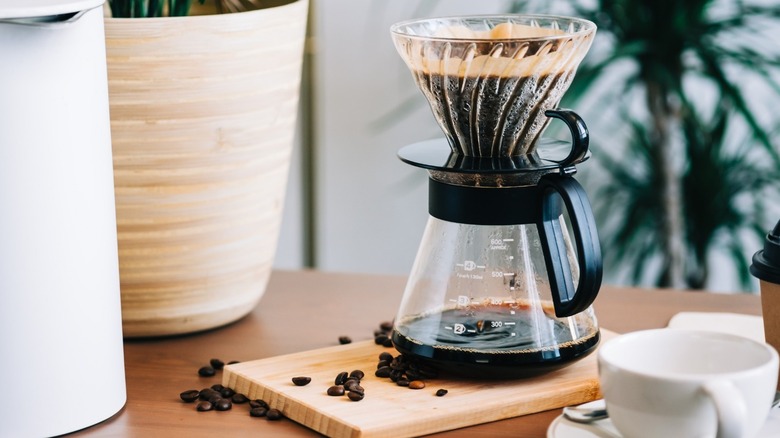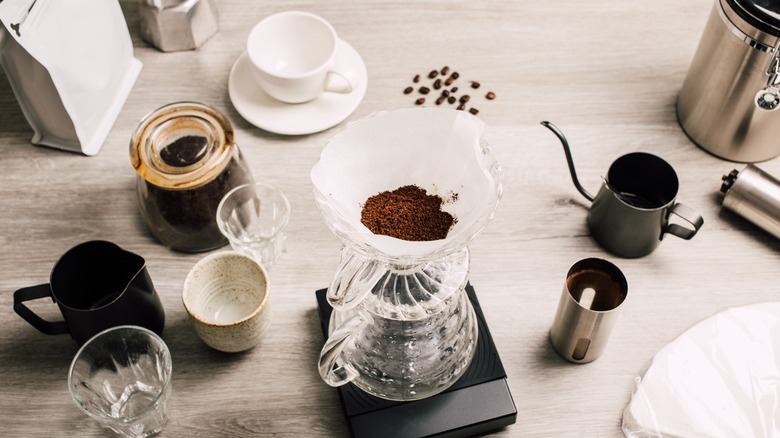The Best Way To Brew Coffee, According To Science
How do you brew your coffee? Do you have a Keurig machine that you just stick a little plastic cup of coffee grounds in and in a few moments you have a fresh cup of hot coffee? Do you still have a percolator because you think that percolation is the only way coffee should be made? In any case, you know that nothing starts the day off right like a cup of joe and, if it gets you through the day, you don't care how it's made.
But how can you get the most out of your coffee? What is the single best way to get the most caffeine and flavor out of your coffee grounds? The answer varies from person to person. Homegrounds suggests that you move up to a French press, as it gives you an "intensely flavored, richly textured cup of coffee" more so than your average drip-fed coffee machine. Perfect Daily Grind, on the other hand, recommends the "pour-over" method, where hot water is slowly poured over coffee grounds within a filter. This method, while a bit slower than other brewing methods, is good for "extracting coffee oils and fragrances," allowing for a richer cup. The method that is the "best of the best" can differ based on one's own preferences.
One method, however, is supposedly backed by science as the best way to prepare your morning joe. Does it hold up?
The best method is the decoction process
According to Dr. Kate Biberdorf, the best way to brew one's coffee is through the decoction method. This method is explained by Biderdorf in her book, "It's Elemental," (via an excerpt posted to Engadget) the decoction method is when extremely hot water is poured over coarse coffee grounds, similar to the pour-over method. The grounds should be allowed to soak in the water for a few minutes before the liquid is "decanted," then slowly poured out into another container, such as your coffee mug.
While this sounds similar to any other method of making coffee, Biberdorf explains that there are a few very precise differences in the decoction process that separate this method from other brewing techniques. The water, for example, should be hot but not boiling. It should preferably be at 205 degrees, just under the boiling point of 212 degrees. If the water is at or over the boiling point, the bitter flavors of the coffee are "seeped out," evaporated by the boiling water. The only drawback is that there is no filtration process, so you'll have coffee pulp floating around in your coffee.
If you think a strong cup of coffee is right for you, you could give the decoction method a shot. You could also enjoy your own preferred cup of coffee any way you want while reading about myths that have been plaguing America's favorite way to wake up.

